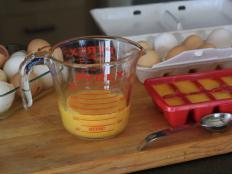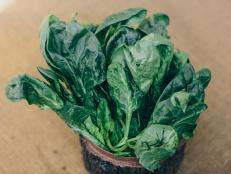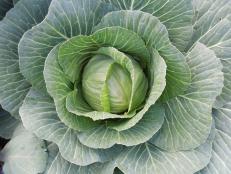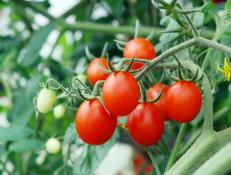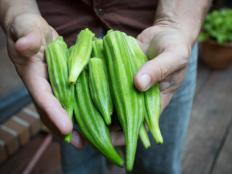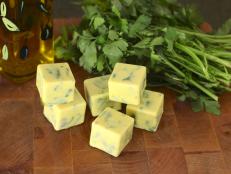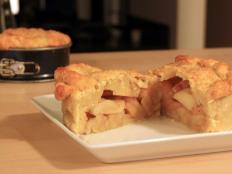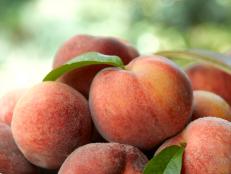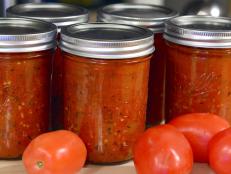Freezing Brussels Sprouts
It’s worth freezing this cabbage cousin when you have homegrown or locally raised versions that boast frost-kissed sweetness.
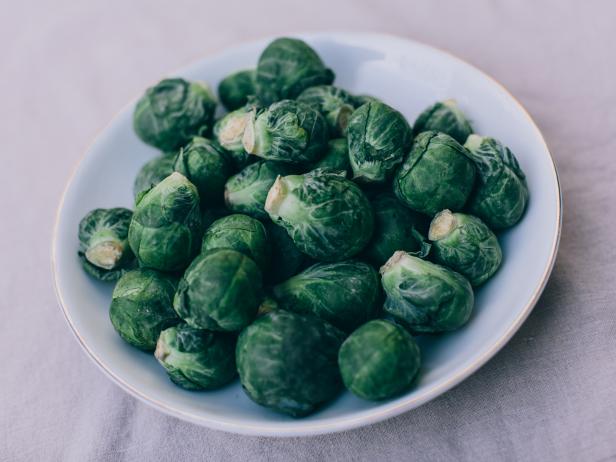
2013, Image courtesy of Ben Rollins
Most people don’t want to eat Brussels sprouts, let alone freeze them. But if you’ve had the opportunity to eat fresh, locally-grown sprouts after a frost, you’ll be a fan—and wanting to learn how to freeze Brussels sprouts.
Freezing Brussels sprouts successfully starts with a homegrown or locally raised product. Why? The secret to wonderful Brussels sprouts is frost. When frost kisses plants, they convert starches to sugars, which sweetens sprouts. The only way to get these sprouts is to grow your own or get locally-grown ones—after a frost. Fresh supermarket versions usually originate in California or Mexico and haven’t experienced the sweetening magic of frost. That’s why Brussels sprouts often taste slightly bitter.
One pound of Brussels sprouts yields roughly one pint frozen. Start the freezing process by washing sprouts. Late-season sprouts often have clusters of aphids or other insects hidden beneath the first or second outer leaf layer. Cause any hitchhikers to exit sprouts by soaking them in a vinegar or salt solution. Use 1 to 3 tablespoons of vinegar or salt per gallon of water. Soak sprouts for half an hour, then rinse thoroughly. Remove old or yellow outer leaves and trim bases.
Freeze Vegetables From Your Garden
See All PhotosSort sprouts by size, grouping them as small, medium, and large. Why? Because blanching times are based on spear size. Blanch small sprouts 3 minutes, medium ones 4 minutes, and large ones 5 minutes. Use a steamer basket to shift sprouts easily between boiling and ice water. Avoid overheating the sprouts, which can contribute to post-freeze mushiness.
After blanching, move Brussels sprouts into the freezer as rapidly as possible. Fast freezing yields a fresher, less mushy product. You have two options for freezing: individual quick freeze or package freezing.
Quick-freeze Brussels sprouts individually on a cookie sheet. For fastest freezing, place the sheet close to where cold air enters your freezer. After sprouts are frozen, tuck them into freezer bags in bulk. Remove as much air as possible from bags before sealing. Grab sprouts by the handful as needed for cooking.
A second option is packaged freezing. In this method, package serving-size portions of Brussels sprouts in freezer bags. Always remove as much air as possible for the freshest product. A vacuum sealer system works well with Brussels sprouts. Avoid overpacking bags. Instead, keep sprouts in a single layer for quickest freezing. Place bags into the freezer as flatly as possible until sprouts are frozen. Afterwards, pack the bags into your freezer to maximize space use.
Brussels sprouts bring more than flavor to the table. These miniature cabbage heads boast cancer-fighting qualities, along with folic acid and Vitamin A. They’re also high in protein, but should be paired with whole grains to serve a complete protein that contains the entire spectrum of amino acids.
For best quality, use frozen Brussels sprouts within 12 to 14 months. Frozen sprouts make a great addition to crock pot stews and homemade soups. Toss them into a skillet with a little olive oil, or add them to stir fries. Frozen Brussels sprouts also taste great when oven roasted with olive oil and salt.
How to Freeze Vegetables
Learn methods for freezing vegetables so you can have fresh taste long after the growing season ends.







